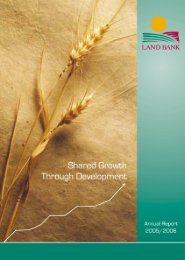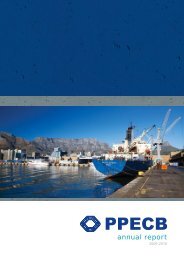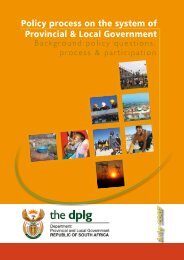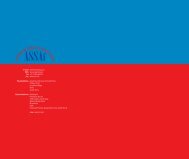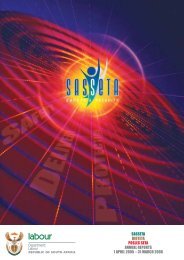Human Settlements Review - Parliamentary Monitoring Group
Human Settlements Review - Parliamentary Monitoring Group
Human Settlements Review - Parliamentary Monitoring Group
Create successful ePaper yourself
Turn your PDF publications into a flip-book with our unique Google optimized e-Paper software.
<strong>Human</strong> <strong>Settlements</strong> <strong>Review</strong>, Volume 1, Number 1, 2010<br />
to, for example, the system of developed by<br />
Open Source House (see www.os-house.<br />
org. The graduates would emerge into ethical<br />
professionals with the will and skills to play<br />
a meaningfully role in solving the problems<br />
of urban informal housing. There is plenty of<br />
opportunity for government and education<br />
institutions to liaise to in terms of strategic<br />
visioning, priority setting, forging of bilateral<br />
and multilateral links, and research funding.<br />
CONCLUSION<br />
There is a housing deficiency in South<br />
Africa that is, to a large extent, being fulfilled<br />
by burgeoning informal settlements. The<br />
government strategy of providing completed<br />
houses to beneficiaries is failing to meet the<br />
deficiency. Moreover, this approach is also<br />
prone to a range of qualitative problems. This<br />
paper has proposed an alternative method<br />
based on incremental innovative intervention<br />
as a more efficacious approach in South<br />
Africa’s context. The approach suggested<br />
hinges on government-empowered self-help<br />
as an avenue for unlocking the currently<br />
latent resources and innovative energy in<br />
communities. Government should limit its<br />
role to that of a provider of a guiding framework<br />
within which the people have the liberty to<br />
innovate at all levels of the production chain<br />
to create sustainable habitats while saving<br />
money, creating jobs, building social networks,<br />
and preserving the natural environment.<br />
masses would probably be driven to riot by<br />
any suggestion that they include something<br />
as “dirt” cheap as earth or reclaimed waste<br />
as part of the solution for self-building their<br />
abodes. After all, recent “toilet riots” in Cape<br />
Town demonstrate that in present day South<br />
Africa, even the very poor prefer to have<br />
concrete walls for their toilets.<br />
Mindset change takes a generation – which<br />
is approximately 30 years. Starting today,<br />
incremental innovation can lead to greatly<br />
improved and improving human settlements<br />
by 2050. Perhaps above all, people need to be<br />
imbued with a pride that will open their eyes<br />
to the riches within their seemingly hopeless<br />
communities. A richness so profuse that world<br />
famous architect Jo Noero took the shack<br />
and the informal as the genesis of his design<br />
philosophy which, in a refreshingly wicked<br />
twist that only gifted designers are capable<br />
of orchestrating, he has successfully applied<br />
to informal and upmarket buildings alike. This<br />
underscores that within the slums is the power;<br />
the power to innovate liveable habitats for the<br />
people, by the people, of the people.<br />
It is appreciated that the reality on the ground<br />
is such that the proposals herein cannot be<br />
realised overnight or even in a couple of years<br />
but could take decades. There are powerful<br />
vested interests to contend with and the poor<br />
98



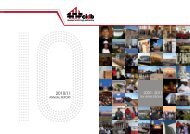
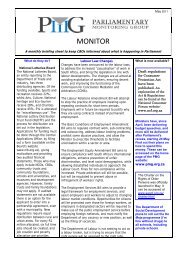
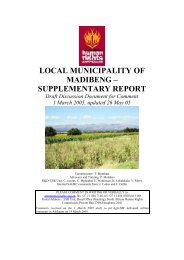
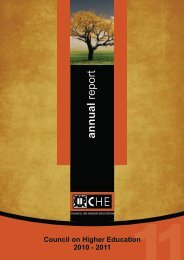
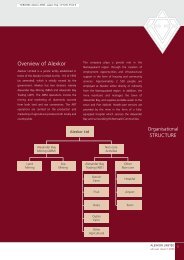
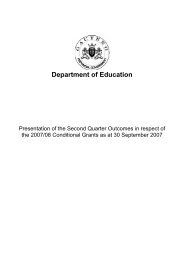
![National Research Foundation Annual Report 2008 / 2009 [Part 2]](https://img.yumpu.com/49774036/1/177x260/national-research-foundation-annual-report-2008-2009-part-2.jpg?quality=85)

